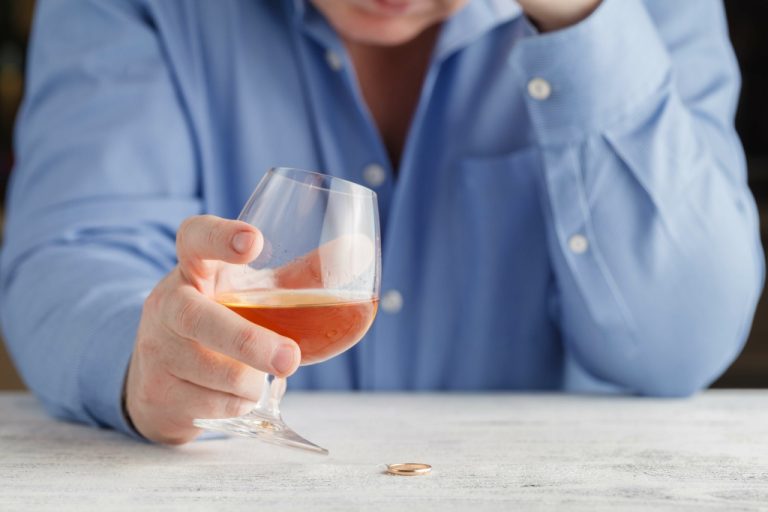For such reasons, the sociological definition regards https://wyomingdigest.com/top-5-advantages-of-staying-in-a-sober-living-house/ as merely one symptom of social deviance and believes its diagnosis often lies in the eyes and value system of the beholder. For example, periodic intoxication can cause sickness necessitating days of absence from work. In a modern industrial community, this makes alcoholism similar to a disease. In a rural Andean society, however, the periodic drunkenness that occurs at appointed communal fiestas and results in sickness and suspension of work for several days is normal behaviour.

For Alcohol Use Disorder, Psychedelics Plus Talk Therapy Cuts Heavy Drinking Days by 83 Percent, Study Shows
People with alcohol use disorders, however, drink to excess, endangering both themselves and others. This question-and-answer fact sheet explains alcohol problems and how psychologists can help people recover. The concept of inveterate drunkenness as a disease appears to be rooted in antiquity. The term alcoholism, however, appeared first in the classical essay “Alcoholismus Chronicus” (1849) by the Swedish physician Magnus Huss.
- When you drink too much, your liver has a harder time filtering the alcohol and other toxins from your bloodstream.
- And medications and behavioral therapies can help people with AUD reduce alcohol intake or abstain from alcohol altogether.
- The harm may be physical or mental; it may also be social, legal, or economic.
Adolescent Brain Cognitive Development (ABCD) Study
Alcohol use disorder (AUD) is a chronic, relapsing disease that is diagnosed based on an individual meeting certain criteria outlined by the Diagnostic and Statistical Manual of Mental Disorders (DSM-5). If you drink more alcohol than that, consider cutting back or quitting. You may need to seek treatment at an inpatient facility if your addiction to alcohol is severe. These facilities will provide you with 24-hour care as you withdraw from alcohol and recover from your addiction.
What should I do if I think that I might have an alcohol use disorder (AUD)?
When seeking professional help, it is important that you feel respected and understood and that you have a feeling of trust that this person, group, or organization can help you. Remember, though, that relationships with doctors, therapists, and other health professionals can take time to develop. Ideally, health professionals would be able to identify which AUD treatment is most effective for each person. NIAAA and other organizations are conducting research to identify genes and other factors that can predict how well someone will respond to a particular treatment. These advances could optimize how treatment decisions are made in the future. It is important to remember that not all people will respond to medications, but for a subset of individuals, they can be an important tool in overcoming alcohol dependence.
Is alcohol use disorder a disease?
Alcohol use disorder is a problematic pattern of alcohol use that leads to distress in one’s daily life, according to the DSM-5. Experiencing at least two symptoms throughout the course of a year merits a diagnosis, from mild to moderate to severe. Mild is classified as 2 to 3 symptoms, moderate is classified as 4 to 5 symptoms, and severe is classified as 6 or more symptoms, according to the DSM-5. Alcohol Use Disorder is a pattern of disordered drinking that leads to significant distress.
- Combined with medications and behavioral treatment provided by health care professionals, mutual-support groups can offer a valuable added layer of support.
- Excessive or inappropriate consumption of alcohol is not necessarily the same as alcohol dependence.
- For most adults, moderate alcohol use — no more than two drinks a day for men and one for women and older people — is relatively harmless.
- According to the 2017 National Survey on Drug Use and Health (NSDUH), 51% of the population aged 12 and older reported binge drinking in the past month.
Learn how many people ages 12 to 20 engage in underage alcohol misuse in the United States and the impact it has. Treatment for AUD may be lifelong and include counseling, support groups, residential programs, and Top 5 Advantages of Staying in a Sober Living House medications. Regular heavy drinking can seriously affect a person’s ability to coordinate their muscles and speak properly. In the brain, levels of the neurotransmitter dopamine rise after consuming alcohol.
- Alcohol dependence develops over time and can disrupt the balance of gamma-aminobutyric acid (GABA) in the brain and glutamate.
- Alcohol use disorder is a problematic pattern of alcohol use that leads to distress in one’s daily life, according to the DSM-5.
- In the brain, levels of the neurotransmitter dopamine rise after consuming alcohol.
- Societal factors include level of economic development, culture, social norms, availability of alcohol, and implementation and enforcement of alcohol policies.
- Furthermore, the greater the abuse or neglect experienced, the more severe their drinking problem was.
Many people struggle with controlling their drinking at some time in their lives. More than 14 million adults ages 18 and older have alcohol use disorder (AUD), and 1 in 10 children live in a home with a parent who has a drinking problem. By working together effectively, the negative health and social consequences of alcohol can be reduced.
Coping and support

Before it becomes problematic, why do people turn to alcohol in the first place? One is simply its rewarding consequences, such as having fun or escaping social anxiety. Having an impulsive personality plays into the decision to seek rewards despite negative repercussions. Another factor is stress, because alcohol can alleviate distressing emotions. Social norms, such as drinking during a happy hour or on a college campus, and positive experiences with alcohol in the past (as opposed to getting nauseous or flushed) play a role as well. For many, beer, wine, and spirits conjure up thoughts of social gatherings and tipsy fun.